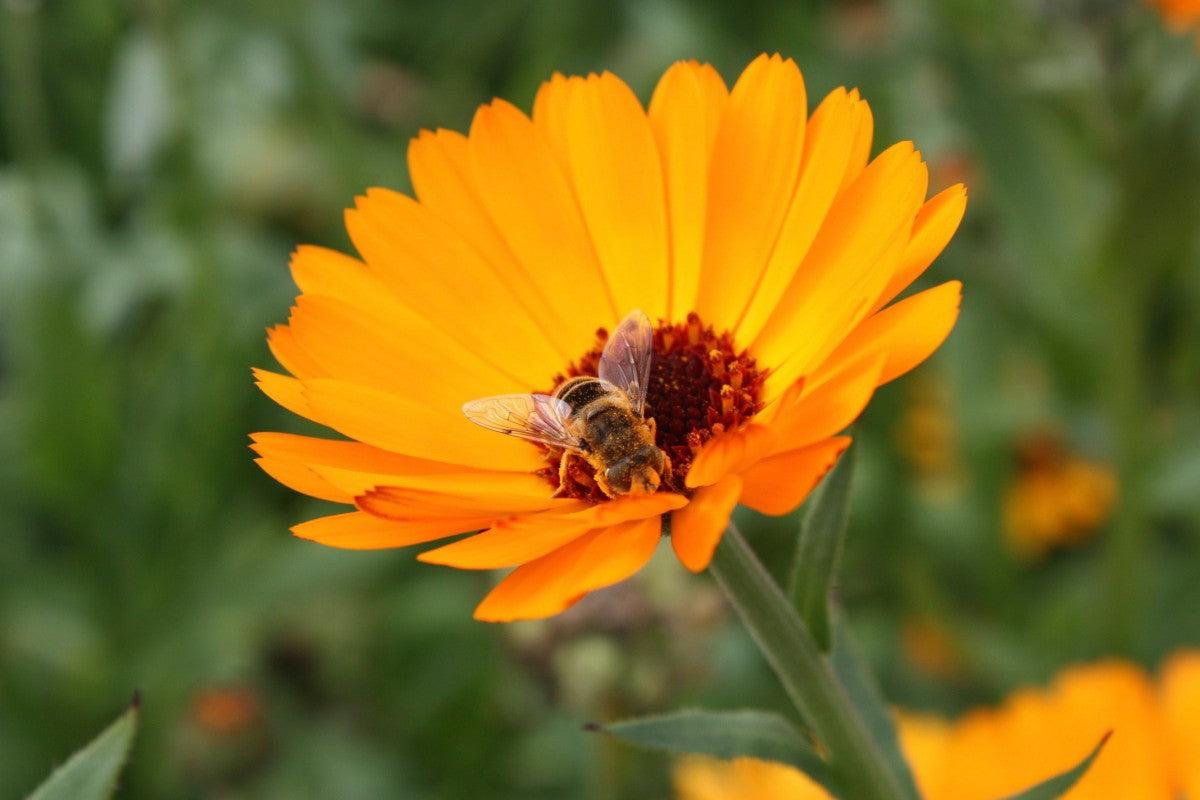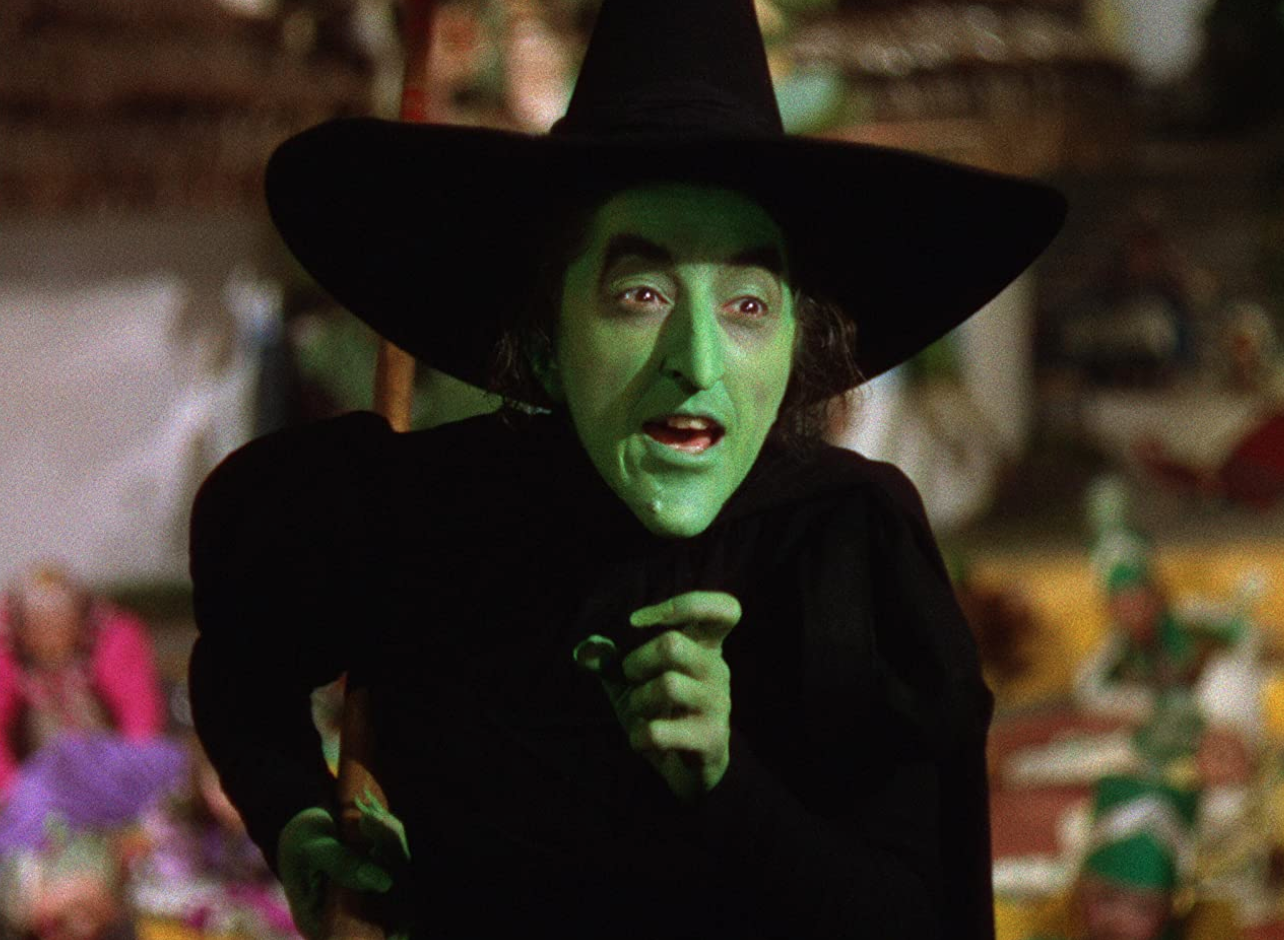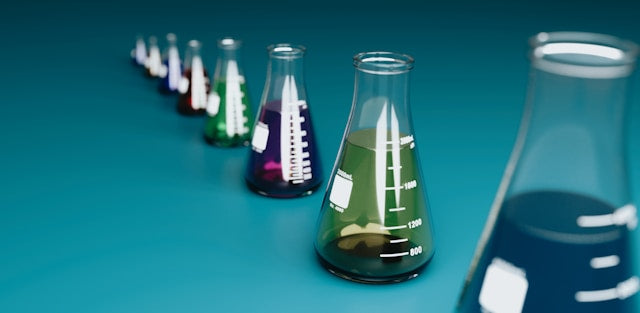
The vegan beeswax debate
Cathy WilkinsDo you find it tricky to find vegan skincare that is right for your skin?
It can be a minefield of ethical and environmental information before you even get to what the benefits to your skin are. We want to address some of the facts and share our point of view - it’s something we think about a lot.
At Lyonsleaf, the vast majority of our products are vegan and we like it this way. But sometimes, we find a wax is needed in a formulation, which leaves us with a difficult decision: vegetable wax or beeswax?
Vegetable waxes
Vegetable waxes have one very strong point going for them – they’re vegan. As it stands today, there is a good variety of choices for vegetable waxes in skincare - Candelilla wax, Carnauba wax, and Soya wax are the most common. Let’s start with Soya wax - it is not a true wax, it is a hydrogenated oil, in skincare this means that the wax loses some of its beneficial fatty acids and when heated releases free radicals, something your skin will not thank you for as they speed up the ageing process.
The true vegan waxes are usually produced as mono-crops and farms that produce them are having a pretty big negative impact on the environment. Carnauba and Candelilla are both grown primarily in South America, where intensive and irresponsible farming practices are destroying natural habitats, meaning a negative effect on biodiversity not to mention the conditions the workers that are producing these waxes work in. A BBC documentary Beauty laid bare last year looked at the production of Candelilla wax, a process involving the harvested plant being boiled with water and sulphuric acid before being filtered then bleached with hydrogen peroxide to get the finished product.
We would love to have a natural, organic, low-impact vegetable wax that we could use guilt-free. Unfortunately, we don’t think this wax exists - we could be wrong (feel free to make suggestions in the comments)
Beeswax
Beeswax is not vegan, although it is considered vegetarian in the same way that dairy products and eggs are. Beeswax is harvested at the same time as honey, so can be considered a by-product. Bees are not killed as a result of harvesting but by removing the honeycomb it can cause stress and therefore impact the bees' immune systems and affect the overall health of the colony.
When honey and beeswax are farmed, bees are often given an artificial replacement food for the honey, which may not contain important micronutrients and can be bad for the bees’ health. Moreover, large populations of honey bees that are moved around and used to pollinate commercial greenhouses can outcompete native bee species, putting them in danger of population decline and genetic homogenisation. Read more about the effects of farming bees on native bee populations.
For beeswax to be certified as organic the bees must be surrounded by a minimum of 6 miles of organic land. Pesticides are bad news for bees, the use of Neonicotinoid pesticides was banned by the UK government in 2018, unfortunately, due to lobbying by the sugar beet industry that decision was reversed in January 2021, this is a big step backwards in protecting bee populations as one teaspoon of Neonicotinoid will kill 1.25 billion bees. bad news for bees.
To Bee or not to Bee?
When it comes to skincare there are similar benefits to beeswax and vegetable waxes, both act as emollients and humectants, (beeswax is a more superior humectant), both mix with oils to create balms and give a more solid end product.
Beeswax is a natural product with only water being involved in producing the end product whereas vegetable waxes although plant derived often involve other harsh chemicals being used to produce them.
At Lyonsleaf where we need wax in a product (it’s not all of them), we have opted for organic beeswax, for two clear reasons. By buying only from certified organic suppliers, we can reduce the number of its negative impacts – bees are left with a supply of their honey to get them through the winter, they live far away from pesticides and farmers are conscious of the impacts their hives may have on native populations. Secondly, as a partner of The Rainforest Trust we will not support agriculture that has a negative impact on this vital and diverse habitat.
Beeswax benefits for skin
Beeswax is a very stable ingredient and combines perfectly with the oils we use in our products, it’s outstanding humectant properties (drawing water towards the skin) mean that it helps to keep skin hydrated resulting in a healthier look and feel.
Our mission is to provide 100% natural, safe, effective, cruelty-free skincare. We don’t plan to reformulate existing products, but we promise we’ll listen to our customers when we create new ones. We would love to know your point of view and, if you know of a beeswax alternative that we haven't talked about that meets our ethical and ecological criteria as well as being great for skin then let us know in the comments.
You can find the list of beeswax-containing Lyonsleaf products here and the Lyonsleaf vegan products, including our best selling Beauty Balm here





